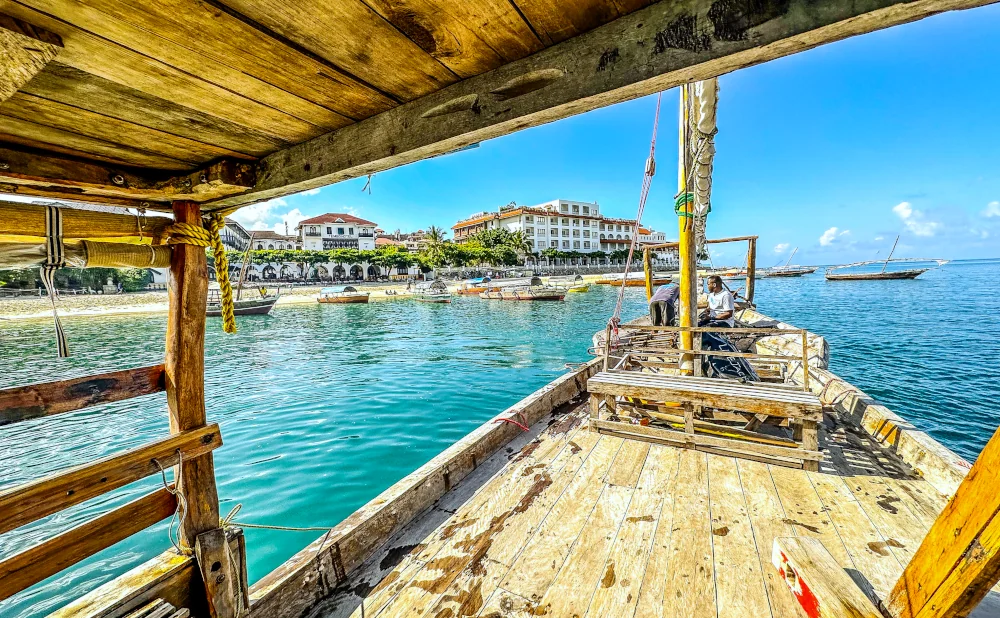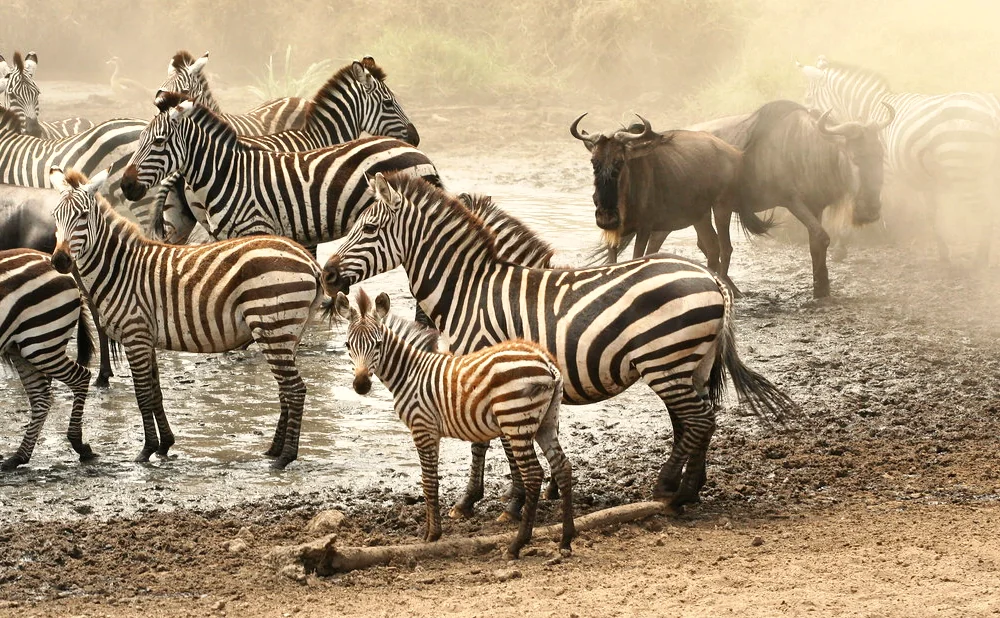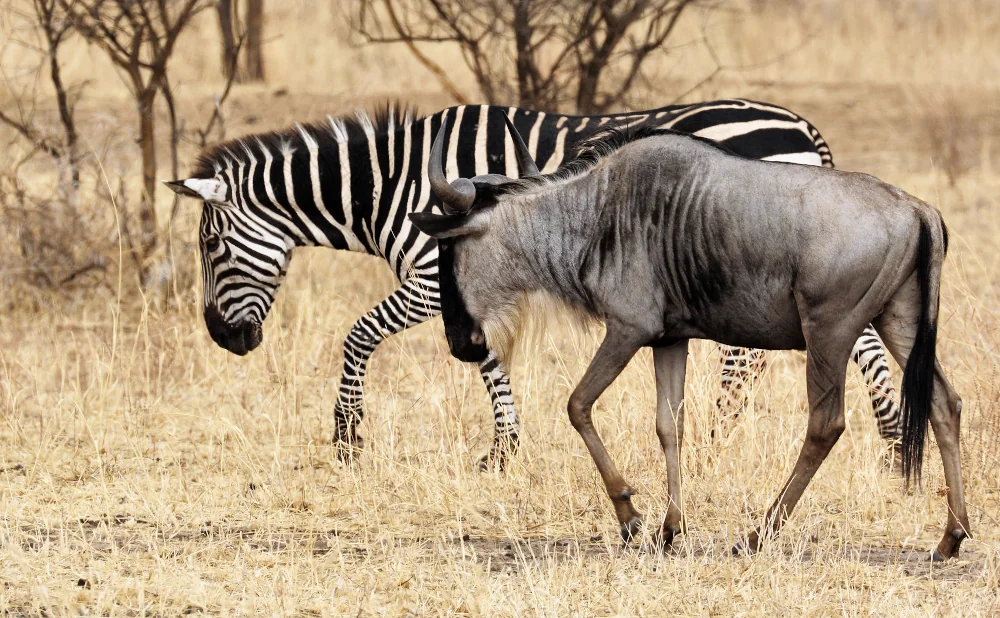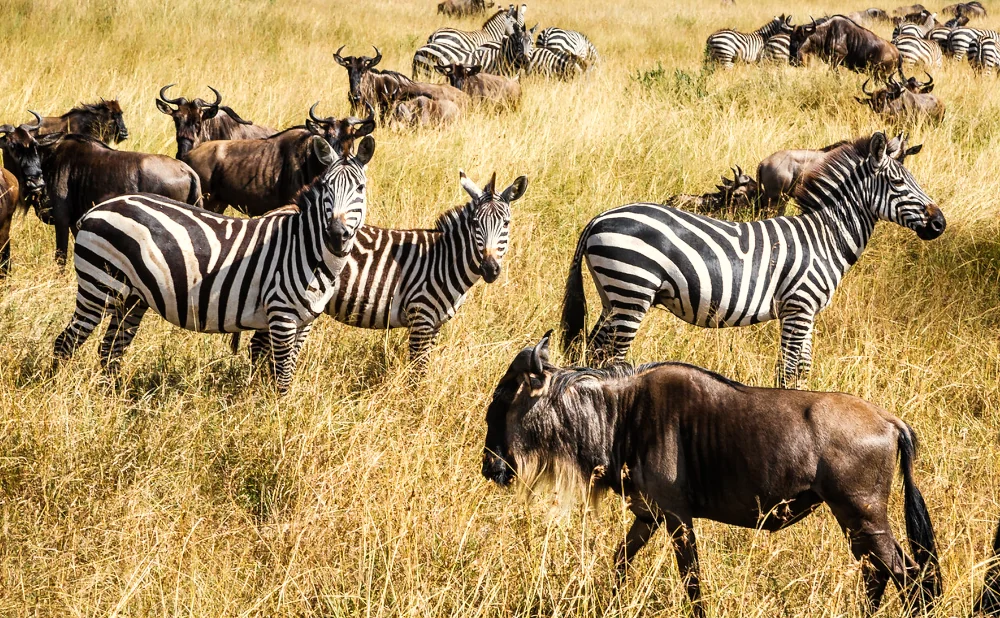Exploring the Wonders of Ndutu Region
The Ndutu Region, a gem in the heart of Tanzania, is a wonder waiting to be explored.
Nestled within the Serengeti ecosystem, it offers a unique spectacle of African wildlife.
From the Great Migration to the calving season, Ndutu is a theater of nature's most captivating performances.
This guide will take you on a journey through the wonders of Ndutu, offering insights into the best times to visit, lodges to stay in, and the unforgettable African golden trips.
The Ndutu Region: A Serengeti Ecosystem Gem
The Ndutu Region is a part of the larger Serengeti ecosystem. It's a haven for wildlife enthusiasts, photographers, and adventure seekers.
The region is home to a diverse range of wildlife, including the Big Five - lions, elephants, buffalos, leopards, and rhinos. It's also a significant location for the Great Migration, where millions of wildebeest, zebras, and gazelles traverse the plains in search of fresh pastures.
The Ndutu Region's geographical features, such as its woodlands and alkaline lakes, provide a unique backdrop for this wildlife spectacle. It's a place where nature's drama unfolds in its rawest and most captivating form.
Witnessing the Great Migration in Ndutu
The Great Migration is a sight to behold in the Ndutu Region. It's a time when the plains come alive with the thunderous movement of wildebeest, zebras, and gazelles.
These herds move in a cyclical pattern, following the rains and the growth of new grass. Ndutu becomes a crucial stop in this journey between December and March. During this period, the region is teeming with life, offering unparalleled wildlife viewing opportunities.
The interplay between predators and prey during the migration is a testament to the harsh realities of life in the wild. It's a spectacle that leaves visitors with a profound appreciation for the intricate balance of nature.
The Calving Season: Nature's Miracle
The calving season in Ndutu is a time of renewal and hope. From late January to March, thousands of wildebeest give birth, dotting the landscape with newborn calves.
This period offers a unique spectacle. The sight of young ones taking their first steps, under the watchful eyes of their mothers, is heartwarming. Yet, it's also a time of high alert, as predators are drawn to the vulnerable calves.
Despite the dangers, the calving season is a testament to the resilience of life in the wild. It's a cycle that has been repeated for millennia, a true miracle of nature that leaves visitors in awe.
African Golden Trips: Your Ultimate Safari Experience
African Golden Trips offer an unparalleled safari experience in the Ndutu Region. These trips are meticulously planned to ensure you witness the best of Ndutu's wildlife and landscapes.
Whether it's the thrill of the Great Migration or the serenity of the calving season, these trips cater to every wildlife enthusiast's dream. With expert guides, comfortable accommodations, and a commitment to sustainable tourism, African Golden Trips are your ticket to an unforgettable Ndutu adventure.
Where to Stay: Lodges in Ndutu
The Ndutu Region offers a range of accommodation options to suit every traveler's needs. From luxury lodges to budget-friendly camps, there's something for everyone.
Some of the top lodges in Ndutu include:
Ndutu Safari Lodge
Lake Masek Tented Camp
Ndutu Wilderness Camp
Serengeti Savannah Camps
Each lodge provides a unique experience, blending comfort with the raw beauty of the African wilderness. Whether you're looking for a tranquil retreat or an immersive safari experience, Ndutu's lodges promise a memorable stay.
Best Time to Visit Ndutu for the Migration
The best time to visit Ndutu for the migration is during the calving season, which typically occurs from late January to March. During this period, thousands of wildebeest give birth, attracting a host of predators and creating dramatic wildlife encounters.
However, Ndutu offers excellent wildlife viewing throughout the year. Even outside the migration season, the region is home to a rich variety of resident wildlife, making any time a good time to explore the wonders of Ndutu.
Eco-Tourism and Conservation in Ndutu
Ndutu is not just about wildlife viewing. It's also a hub for eco-tourism and conservation efforts. Many lodges and safari operators in the region are committed to sustainable practices, ensuring that tourism benefits both the wildlife and the local communities.
Conservation is a key focus in Ndutu. From protecting the region's diverse ecosystems to supporting research and education initiatives, there's a concerted effort to preserve Ndutu's natural wonders for future generations.
Activities Beyond Game Drives
While game drives are the main attraction, Ndutu offers a range of other activities for visitors. These provide unique ways to experience the region's natural beauty and cultural heritage.
Walking safaris: Experience the wilderness up close.
Cultural visits: Learn about the local tribes and their traditions.
Birdwatching: Ndutu is home to a variety of bird species.
Night safaris: Discover the region's nocturnal wildlife.
Photography workshops: Capture stunning images of Ndutu's landscapes and wildlife.
Getting to Ndutu: Travel Tips
Reaching Ndutu is part of the adventure. The region is accessible by road and air, with several domestic airports nearby.
Plan your journey well in advance. Consider the season, as road conditions can vary. Always consult with your tour operator or lodge for the most accurate and up-to-date travel advice.
Embracing the Ndutu Adventure
The Ndutu Region is a treasure trove of natural wonders. From the Great Migration to the calving season, every moment spent here is a testament to the beauty of the wild.
Whether you're a seasoned traveler or a first-time visitor, Ndutu promises an unforgettable experience. So pack your bags, bring your camera, and get ready to explore the wonders of Ndutu.











